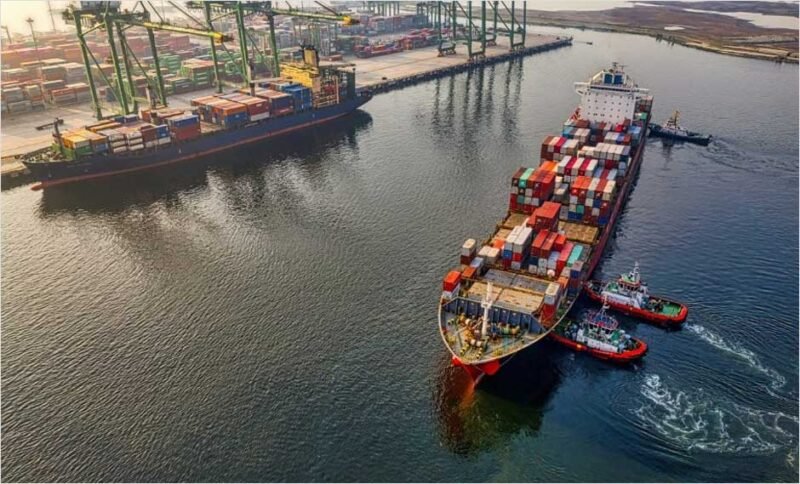In today’s interconnected economy, the movement of goods is the backbone of global trade. Businesses across industries—from agriculture to energy—rely on efficient transportation systems to move raw materials and finished products. One specialized solution that plays a critical role in these logistics chains is bulk freight transport.
Unlike standard shipping methods that move packaged items or containers, bulk freight transport is designed for large quantities of unpackaged goods. This approach is essential for companies that deal in commodities such as grains, coal, ores, liquids, and chemicals. But what exactly does bulk freight transport involve, and when is it the right choice for your business? Let’s take a deeper look.
What is Bulk Freight Transport?
Bulk freight transport refers to the movement of large volumes of loose, unpackaged materials. Instead of being loaded into individual boxes or containers, these goods are typically handled in bulk—directly into the hold of a vessel, specialized railcars, or dedicated trucks.
There are two primary categories of bulk freight:
- Dry Bulk Freight
This includes solid commodities such as:
- Grains (wheat, corn, rice)
- Coal
- Iron ore
- Cement
- Fertilizers
These goods are often loaded and unloaded using conveyor belts, cranes, or pneumatic systems.
- Liquid Bulk Freight
This category covers liquids such as:
- Crude oil
- Petroleum products
- Chemicals
- Liquid food products (like vegetable oils, juices, or wine)
Liquids are transported in tankers, pipelines, or railcars specifically engineered to handle fluids safely.
Both dry and liquid bulk freight rely on specialized handling, storage, and safety systems to ensure efficiency and minimize losses.
Key Features of Bulk Freight Transport
Bulk freight transport differs significantly from containerized shipping or parcel delivery. Its unique features include:
- Scale: Designed for very high volumes, often measured in thousands or millions of tons.
- Specialized Equipment: From bulk carriers and tankers to rail hoppers and silo trucks, the equipment is built to handle specific materials.
- Loading and Unloading Systems: Automation and heavy machinery streamline the transfer of materials, reducing time and labor costs.
- Global Infrastructure: Ports, storage terminals, and rail networks across the world are tailored to bulk freight.
Because of these characteristics, bulk freight is particularly cost-effective for large-scale, commodity-driven industries.
When to Choose Bulk Freight Transport
Not every shipment requires bulk freight services. Here are some scenarios where it is the most appropriate and efficient choice:
- High-Volume Shipments
If your business regularly moves large quantities of raw materials, bulk freight transport is often the most economical option. The per-unit cost of shipping decreases significantly as volumes increase.
- Commodities Without Packaging Needs
When goods do not require individual packaging—like grain, coal, or crude oil—bulk transport eliminates unnecessary costs associated with containers, boxes, or pallets.
- Long-Distance or International Shipping
Bulk carriers and tankers are built for global trade. If your supply chain depends on raw materials crossing oceans or continents, bulk freight ensures efficient, large-scale movement.
- Time-Sensitive Distribution
Some commodities, such as agricultural products, need rapid transportation from producer to processor. Bulk freight systems are often optimized for fast loading and unloading, ensuring minimal delays.
- Industry-Specific Requirements
Certain industries—like mining, agriculture, energy, and chemicals—depend almost exclusively on bulk freight because of the nature of their products.
Advantages of Bulk Freight Transport
- Cost Efficiency
Shipping in bulk reduces the overall cost per ton compared to containerized transport. This makes it particularly beneficial for businesses working with low-margin, high-volume products.
- Streamlined Logistics
By eliminating the need for packaging and repackaging, bulk freight simplifies the supply chain, cutting down handling times and reducing labor expenses.
- Specialized Safety Measures
Bulk freight systems are designed with safety in mind, especially when transporting hazardous chemicals or volatile liquids. Tankers and railcars are built to contain spills and withstand extreme conditions.
- Environmental Benefits
Fewer trips are needed when transporting large quantities in bulk, which can reduce fuel consumption and carbon emissions per ton of cargo.
- Global Reach
Bulk shipping networks are well-established, making it easier to move commodities across continents and integrate with international markets.
Challenges of Bulk Freight Transport
While highly efficient, bulk freight transport also comes with challenges that businesses should consider:
- Infrastructure Dependence: Requires access to ports, rail lines, or storage terminals equipped for bulk handling.
- Commodity Vulnerability: Exposure to elements (like moisture for grains) can lead to spoilage or degradation if not managed properly.
- High Initial Costs: Specialized equipment and storage facilities may involve significant capital investment.
- Market Volatility: Bulk transport is heavily tied to global commodity markets, which can impact demand, pricing, and scheduling.
Bulk Freight Transport vs. Container Shipping
It’s important to distinguish bulk freight transport from containerized shipping, as both serve different needs:
| Feature | Bulk Freight Transport | Container Shipping |
| Cargo Type | Loose, unpackaged goods (grains, liquids, ores) | Packaged or manufactured goods |
| Volume | Extremely large volumes | Small to medium loads |
| Flexibility | Limited to commodities | Flexible, can handle diverse products |
| Infrastructure | Requires specialized facilities | Uses standard ports and intermodal systems |
| Cost Efficiency | Lower cost per ton for large shipments | Higher per-unit cost but more adaptable |
For businesses shipping massive amounts of homogenous goods, bulk freight is superior. For smaller, diverse, or high-value cargo, containers are often a better choice.
Industries That Rely on Bulk Freight Transport
Several industries are deeply intertwined with bulk freight transport:
- Agriculture
Grains, oilseeds, and fertilizers are regularly shipped in bulk to meet global food supply demands. - Energy
Crude oil, coal, and natural gas liquids depend on bulk carriers and pipelines. - Mining and Metals
Iron ore, bauxite, and other minerals are transported from extraction sites to smelting and manufacturing facilities. - Chemicals and Petrochemicals
Bulk tankers handle hazardous liquids and gases safely and efficiently. - Construction
Bulk cement, sand, and gravel are essential for building projects worldwide.
Future Trends in Bulk Freight Transport
As global trade evolves, bulk freight transport is adapting with new technologies and strategies:
- Digitalization: Real-time tracking, predictive maintenance, and AI-driven logistics are improving efficiency.
- Sustainability: Growing emphasis on eco-friendly fuels, emission-reducing technologies, and greener shipping practices.
- Automation: Automated loading and unloading systems are reducing turnaround times at ports and terminals.
- Diversification of Routes: Expanding rail and inland waterways to reduce dependence on congested sea routes.
These advancements will further enhance the role of bulk freight in global commerce. For more specialized vehicle logistics within the UK, businesses can rely on trusted solutions such as https://www.shiply.com/car-transporters/hampshire-car-transporters, which provide professional and secure transport for cars and other vehicles across Hampshire and beyond.
Conclusion
Bulk freight transport is a specialized logistics solution tailored for the movement of massive quantities of unpackaged goods. From grains and coal to crude oil and chemicals, it is indispensable for industries that drive the global economy.
Choosing bulk freight makes sense when your business handles high volumes, requires cost efficiency, or operates in sectors like agriculture, mining, or energy. While there are challenges—such as infrastructure needs and exposure risks—the benefits often outweigh the drawbacks for commodity-driven industries.
As technology and sustainability initiatives reshape global supply chains, bulk freight transport will continue to be a cornerstone of efficient, large-scale logistics. Businesses that understand when and how to use it will be better positioned to compete in a globalized marketplace.









